John Vianney was born in 1786 in the village of Dardilly, France (near Lyons). He was the third of six children born to poor farmers, and because of the family’s poverty, was not educated until he was a young adult (approximately age 20). Instead, like many saints, he worked as a shepherd in his youth, taking time only to attend Mass, study his catechism, and pray. So devout was he that from an early age he taught the other children their prayers and catechism. As a child, he knew his vocation was to become a priest, and while he had learned the basics of reading and writing from his older sisters, his lack of formal education would prove to be very challenging for the pious young man.
At age 20, he began his education, but was interrupted by being called for military service. Due to illness and moral arguments against military service, John avoided fighting by hiding from Napoleon’s armed police. At the conclusion of his “service,” he returned to school, where he eventually succeeded—although not without difficulty. Having missed so much education in his youth, John struggled with Latin, and had to repeatedly take his examinations required for ordination into the priesthood before he passed them. It took a special appeal to the vicar-general of France to get permission for John to be ordained. The vicar-general asked his superiors, "Is he pious?"
They responded, “Yes, he is undoubtedly pious.”
"Ordain him,” the vicar-general decided, "The grace of God will do the rest." Finally ordained at age 30, despite the vicar-general’s confidence, his superiors had little faith in him due to his academic struggles, and placed him under the tutelage of a nearby priest for further training.
Eventually, John was assigned to Ars, a remote village near Lyons with a small congregation, many of whom were quite lax in their observances. There, as the Curé d’Ars (Pastor of Ars), John spent the next 42 years of his life, attending to his congregation with the most extraordinary care. He devoted himself to prayer, pastoral works, and hearing confession—spending up to 16 hours each day in the confessional, receiving visitors from all over the globe. His days would generally begin around 1 a.m., when he began hearing confessions. By 1855, over 20,000 faithful were journeying to Ars each year in hopes of meeting with the gentle and practical priest. Among his penitents were bishops, military leaders, princes, and kings. Through his work, he brought about a spiritual renewal that spread throughout France.
The preaching style of Saint John was quite simple and easy to understand, and his translation and reflections of the catechism caused his community to flourish. His catechetical writings survive him, including discourses on prayer, communion, love, and temptation. Saint John was especially devoted to the Blessed Sacrament, Our Blessed Mother, and had a special devotion to Saint Philomena.
As pastor, Saint John could have enjoyed a comfortable life, well dressed and fed, and cared for by his congregation. Rather, he lived the most rigorously austere life, filled with fasting, harsh mortification, and self-denial. He ate only boiled potatoes, which he cooked himself, and kept hung from the ceiling in his small room (to keep them out of the reach of the rats he shared the space with). He allowed himself only two hours of sleep each night, and even that was frequently interrupted by the Devil who mystically assaulted him with noises, insults, and physical abuse which often left visible bruises and scars. Witnessed by concerned members of the congregation, Saint John accepted the fiendish visits as necessary, and even found ways in which to joke about them.
Saint John oversaw the development of an orphanage for girls known as “The Providence.” There, along with devout faithful, the girls were cared for, instructed in the faith, and taught trade skills. Miraculously, the orphanage never struggled financially, with money always appearing as if given by the Lord, Himself. Other miracles attributed to Saint John include his ability to “read hearts” (supernatural knowledge of the past and the future) in the confessional, and many miraculous cures of the ill who traveled to Ars to confess.
Throughout all his torments and renown, Saint John remained humble, declining offers of advancement or election in the clergy. His service and openness to following the will of God led to the conversion of thousands. His every breath served to seek the Lord, and dedicate his life to Him. He is a model of humility, gentleness, patience, cheerfulness, faith, and obedience which we can all learn from.
Saint John Vianney died peacefully at the age of 73. In the early 1900s, his body was exhumed because of his impending beatification, and was found perfectly incorrupt (pictures of his body, and his incorrupt heart, are below). Saint John Vianney is the only diocesan priest to be canonized and is the patron saint of parish priests.
Selected Quotations of Saint John Vianney:
“Private prayer is like straw scattered here and there: If you set it on fire it makes a lot of little flames. But gather these straws into a bundle and light them, and you get a mighty fire, rising like a column into the sky; public prayer is like that.”
“My little children, your hearts, are small, but prayer stretches them and makes them capable of loving God. Through prayer we receive a foretaste of heaven and something of paradise comes down upon us. Prayer never leaves us without sweetness. It is honey that flows into the souls and makes all things sweet. When we pray properly, sorrows disappear like snow before the sun.”
“Man is a beggar who needs to ask God for everything.”
“All our religion is but a false religion, and all our virtues are mere illusions and we ourselves are only hypocrites in the sight of God, if we have not that universal charity for everyone - for the good, and for the bad, for the poor and for the rich, and for all those who do us harm as much as those who do us good.”
“One would need to be a Saint to celebrate worthily. When we are in Heaven, we will appreciate the value of the Mass and how often we have said it without due reverence, or worship, or recollection."
“If people would do for God what they do for the world, what a great number of Christians would go to Heaven.”
“You either belong wholly to the world or wholly to God.”
“I tell you that you have less to suffer in following the Cross than in serving the world and its pleasures.”
“You cannot please both God and the world at the same time, They are utterly opposed to each other in their thoughts, their desires, and their actions.”
“We must always choose the most perfect. Two good works present themselves to be done, one in favor of a person we love, the other in favor of a person who has done us some harm. Well, we must give preference to the latter.”
“We should consider those moments spent before the Blessed Sacrament as the happiest of our lives.”
“Prayer is the inner bath of love into which the soul plunges itself.”
"All the good works in the world are not equal to the Holy Sacrifice of the Mass because they are the works of men; but the Mass is the work of God. Martyrdom is nothing in comparison for it is but the sacrifice of man to God; but the Mass is the sacrifice of God for man."
"When our hands have touched spices, they give fragrance to all they handle. Let us make our prayers pass through the hands of the Blessed Virgin. She will make them fragrant."
"Upon receiving Holy Communion, the Adorable Blood of Jesus Christ really flows in our veins and His Flesh is really blended with ours."
"If we could comprehend all the good things contained in Holy Communion, nothing more would be wanting to content the heart of man. The miser would run no more after his treasures, or the ambitious after glory; each would shake off the dust of the earth, leave the world, and fly away towards heaven."
From Pope Benedict’s Address to Religious at Fatima:
“Dear friends, let us imitate the Curé of Ars who prayed to the Lord in the following words: “Grant me the conversion of my parish, and I accept to suffer all that you wish for the rest of my life”. And he did everything to pull people away from their own lukewarm attitude in order to lead them back to love.
There exists a deep solidarity among all the members of the Body of Christ. It is not possible to love Christ without loving his brothers and sisters. For their salvation John Mary Vianney decided to become a priest: “to win souls for the good God”, as he said when, at eighteen years of age, he announced his vocation, just as Paul had said: “to win as many as I could” (1 Cor 9:19). The Vicar General had told him: “there is not much love of God in the parish; you will bring it there”. In his priestly passion, this holy parish priest was merciful like Jesus in meeting each sinner. He preferred to insist on the attractive aspect of virtue, on God’s mercy, in comparison to which our sins are like “grains of sand”. He pointed to the merciful love of God which had been offended…Then is the time to take a firm stand, with an attitude of warm fraternal love, as brother assisting his brother to ‘remain on his feet.’”
Saint John Vianney’s Prayer to Jesus:
I love You, O my God, and my only desire is to love You until the last breath of my life.
I love You, O my infinitely lovable God,
and I would rather die loving You, than live without loving You.
I love You, Lord and the only grace I ask is to love You eternally
My God, if my tongue cannot say in every moment that I love You,
I want my heart to repeat it to You as often as I draw breath.
Inspired by the origins and spiritual history of the Holy Rosary, we continue our meditation on the psalms, one each day, in order, for 150 days.
Psalm: Psalm 101: Norm for the Life of Rulers
1 I will sing of your love and justice;
to you, O LORD, I will sing praise.
2 I will be careful to lead a blameless life—
when will you come to me?
I will walk in my house
with blameless heart.
3 I will set before my eyes
no vile thing.
The deeds of faithless men I hate;
they will not cling to me.
4 Men of perverse heart shall be far from me;
I will have nothing to do with evil.
5 Whoever slanders his neighbor in secret,
him will I put to silence;
whoever has haughty eyes and a proud heart,
him will I not endure.
6 My eyes will be on the faithful in the land,
that they may dwell with me;
he whose walk is blameless
will minister to me.
7 No one who practices deceit
will dwell in my house;
no one who speaks falsely
will stand in my presence.
8 Every morning I will put to silence
all the wicked in the land;
I will cut off every evildoer
from the city of the LORD.
Day 216 of 365
Prayer Intentions: For all priests and religious; For humility and obedience in our lives.
Requested Intentions: Health, financial success, positive move (S); Financial security, and health, guidance, and protection for children (ML); For the religious and children of Saint Xavier’s Boarding School, India (FB); Fortitude and faith, Career success (A); Healing of a relationship, employment (A); End to debt and legal difficulties; immigration success (B); For a mother’s continued employment (S); For continued blessings on a relationship (S); For a sick grandmother (R); For the building of a Catholic community, family, and law practice (M); Those suffering from depression (J); Successful adoption (S); Healing of a father battling cancer (S).
Psalm: Psalm 101: Norm for the Life of Rulers











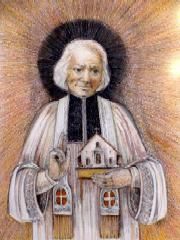
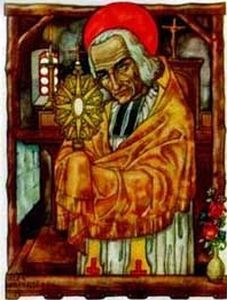






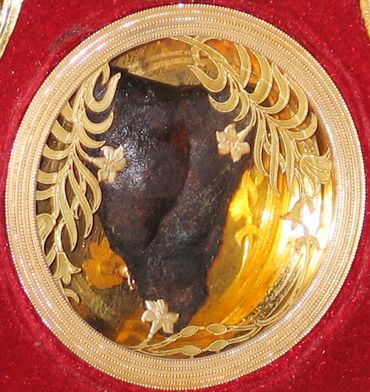

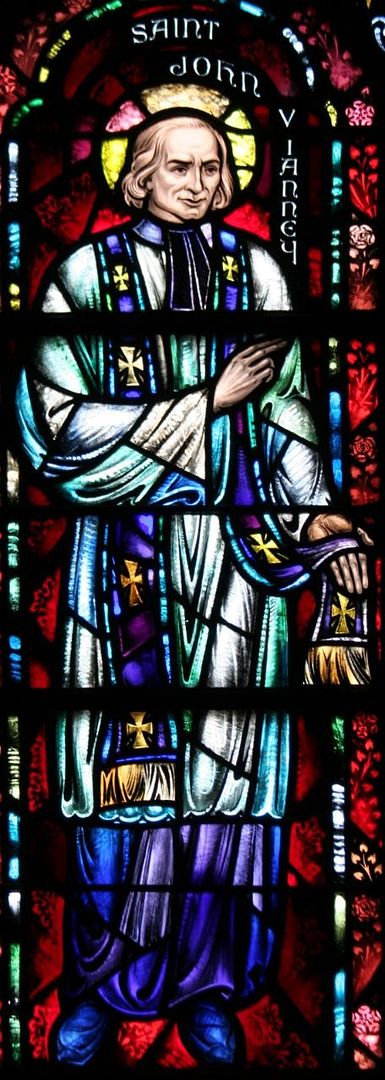



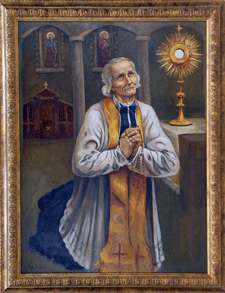
0 comments:
Post a Comment
Thanks for leaving a comment. If you wish to submit a prayer request, however, please do so above, using the "Contact" tab.